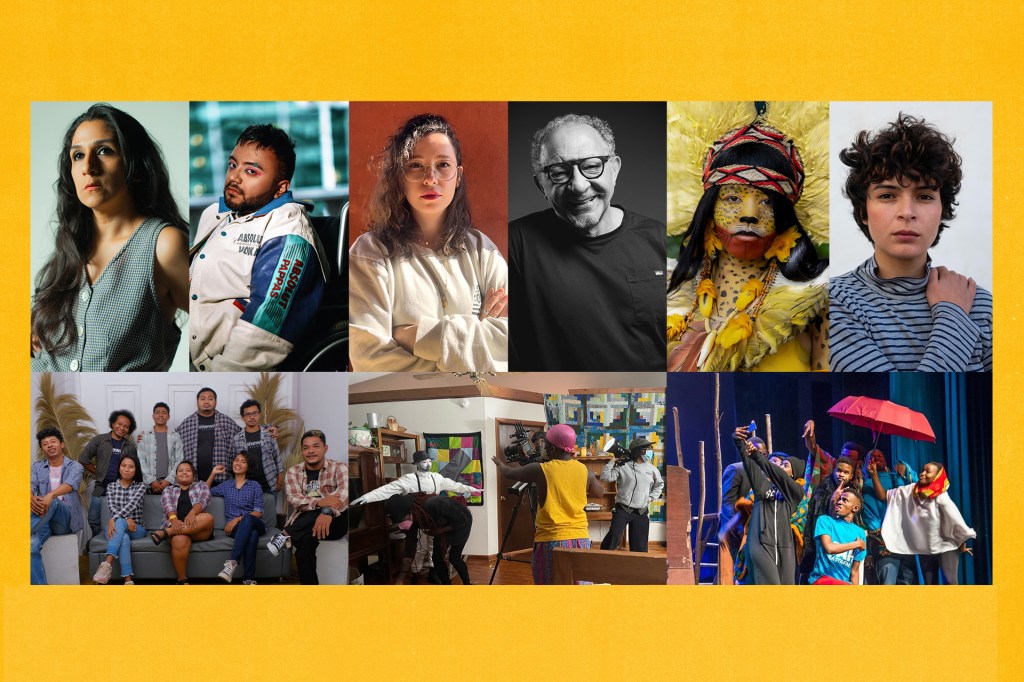Civic space is an essential contributor to a thriving, inclusive democracy. It is where people raise their voices about the decisions that affect their lives, hold the powerful accountable, and fight for equality. It exists both in physical spaces and online, pulls its strength from the diversity of its participants, and pushes culture toward progress through robust dialogues and shared goals. And, more than ever, it is essential that we protect civic space; around the world, rising authoritarianism and suppression of free expression threatens these crucial forums and deepens inequality.
The nine grantee partners of Ford’s Creativity and Civic Space initiative are dedicated to expanding and preserving these assemblies. These artists and organizations are holding public and private leaders accountable, amplifying powerful stories that broaden representation and fight discrimination, raising stark spotlights to human rights violations and corruption, and more. Through this initiative, they have received grants, communications, and convening support to further their work creating open spaces and conversations about the issues that affect their communities most.
This initiative builds on Ford’s long-standing commitment to the idea that arts and culture shape our understanding of the world. These leaders’ mediums may differ—film, performance, visual art, theater—but their goal is the same: to elevate cultural narratives and inspire collective momentum toward a more just, inclusive society. Meet them here.
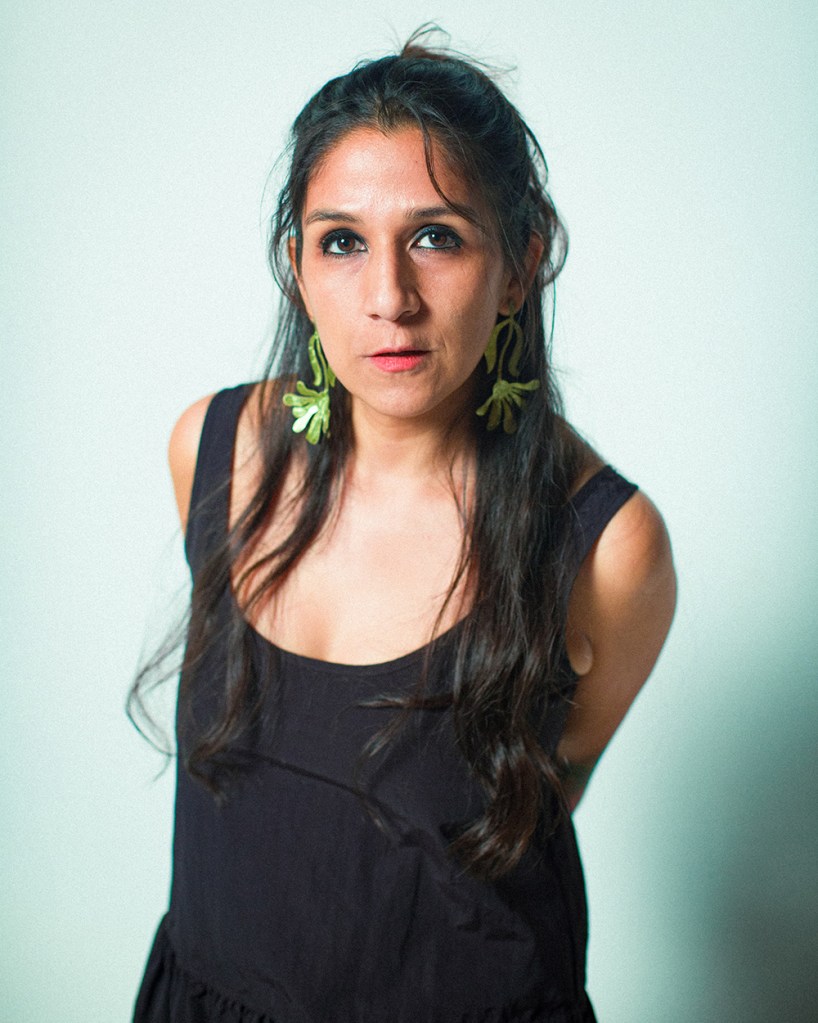 Brenda Vanegas
Brenda VanegasBrenda Vanegas
Brenda Vanegas is a filmmaker, writer, and professor based in El Salvador. She founded her production company, Encantada Por La Vida, in 2011, and makes films focused on human rights. She is also the founding partner and president of the only film foundation in El Salvador.
Brenda’s projects include: Before the Rain, her debut film, which addresses female migration; All the Fish, which focuses on violence against children in rural areas; and Altares, a documentary about survivors of the El Mozote massacre in El Salvador. She has also written as a columnist for Factum Magazine and taught film for 15 years. Her latest project, Las Locas de la Praviana, tells the story of trans women massacred during the civil war in El Salvador, making visible lives that have never been narrated in the official history.
Brenda believes that inhabiting the academic world gives artists both a privilege and an obligation to pass on these tools to students and future generations. While making social commentary films and teaching young artists is not always celebrated publicly as an achievement, it is critical to show others how powerful a tool art can be. By depicting what happens to a society that does not fully enjoy its rights, it is possible to see more clearly what a better, freer, more equitable one can look like.
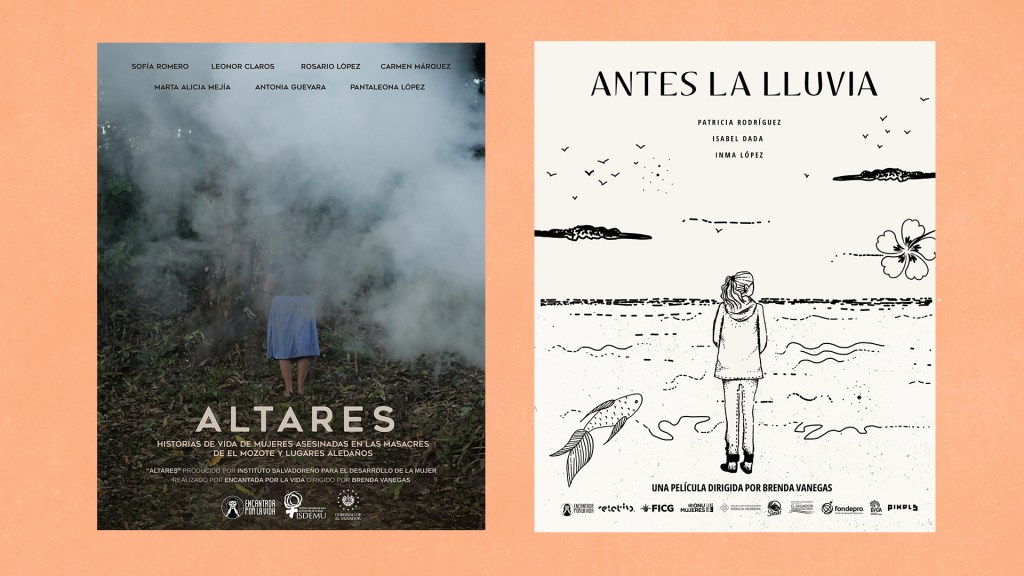 Brenda Vanegas
Brenda VanegasComfrey Films
Comfrey Films is a film training program and production house that supports independent Black trans, gender-nonconforming, and intersex (TGNCI) creators and storytellers. It centers historical and present day stories woven at the intersection of being Black and TGNCI and prioritizes communities in rural areas, especially in the American South.
Founded by Joie Lou Shakur in 2017 in Durham, North Carolina, Comfrey Films recently held its first Black Trans Short Film Competition. It also finished Under False Colors, a narrative short film about Frances Thompson, a survivor of the Memphis Massacre of 1866 who was a Black trans woman. Under False Colors brought together over 25 Black TGNCI people in its creation, including writing, costuming, editing, and distribution. In the future, Comfrey Films aims to open a multipurpose community and work space that is entirely owned and operated by Black TGNCI people and provides a place for filmmakers and creators to store and utilize filmmaking equipment, collaborate, screen films, and continue the powerful work of shifting narrative and culture toward a better world.
Comfrey Films understands that storytelling is essential to breaking the isolation of Black TGNCI people in rural areas and is a way to help Black trans people connect the dots between historical Black trans figures and current Black trans organizers, community builders, and others working to change society and create a new legacy. By preserving work by past and present Black TGNCI artists, Comfrey Films uses filmmaking and archival work as a tool for cultural organizing, healing, and racial, gender, and economic justice.
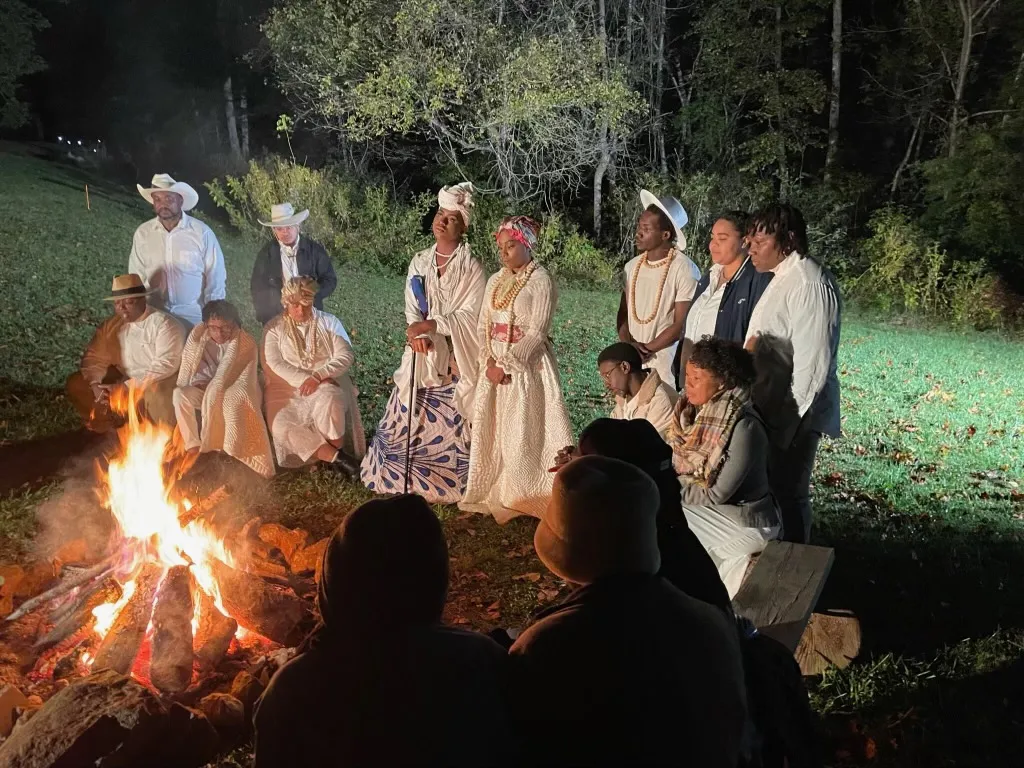 Comfrey Films
Comfrey Films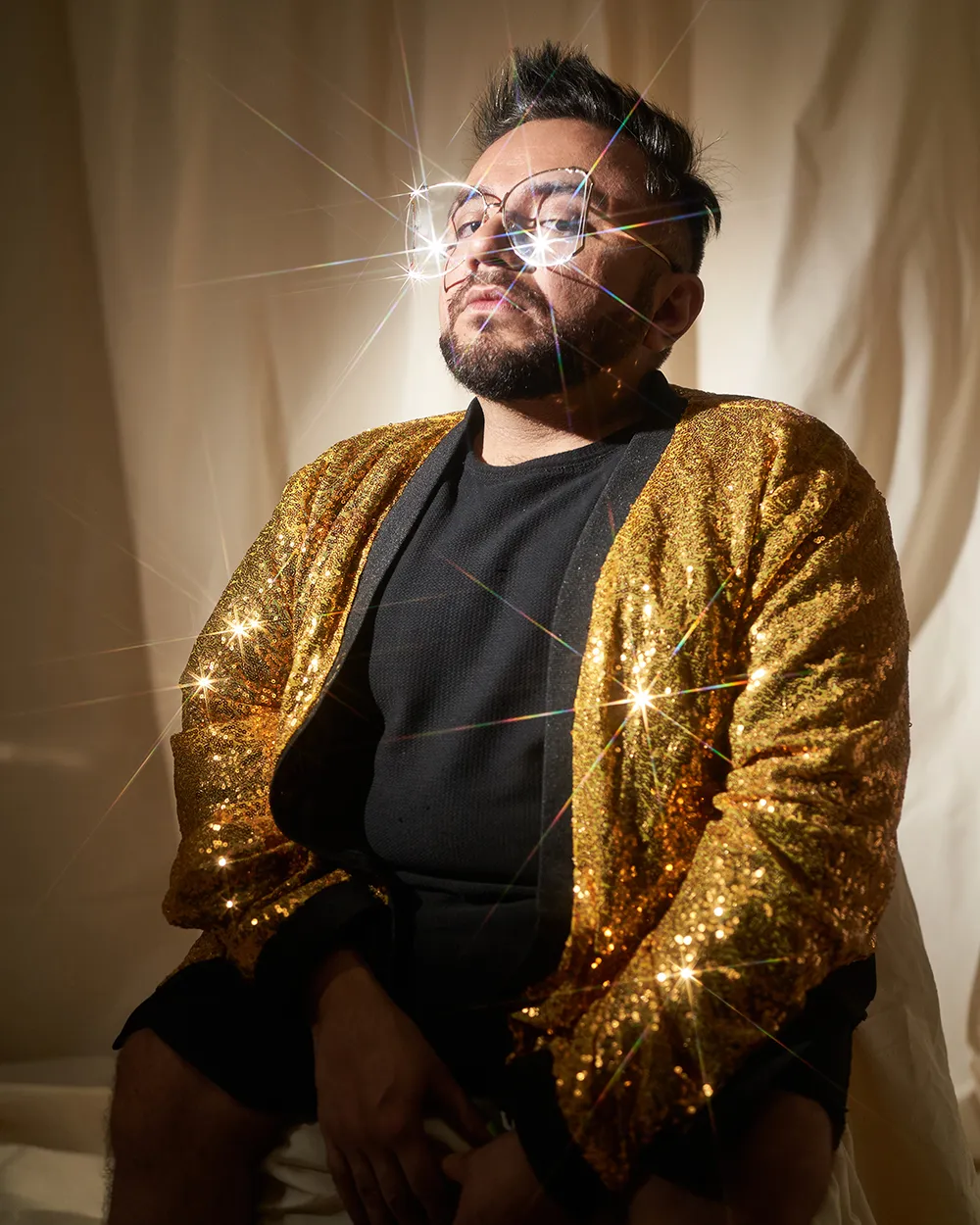 Guz Guevara
Guz GuevaraGuz Guevara
Guz Guevara is an activist, producer, and speaker. Originally from the city of San Luis Potosí, Mexico, he was born with a condition called Osteogenesis Imperfecta, which causes his bones to be fragile and fracture easily. He has been a wheelchair user since he was six years old.
Guz has led more than 400 conferences and workshops and has been invited to speak at local, national, and international media outlets. He has also served as an advisor to different municipal, state, and federal governments and administrations on human rights, diversity, inclusion, and entrepreneurship. He is co-founder of the Movement of People with Disabilities, and creator of the “Fosfo Handkerchief,” a symbol of visibility, struggle, and resistance for people with disabilities all around the world.
Guz is dedicated to promoting non-discrimination and the inclusion of people with disabilities and the LGBTTTIQA+ population. He is currently the host of “80 Millones,” a weekly nationwide broadcast on Canal Once that is the first Mexican television program dedicated entirely to talking about issues that people with disabilities face. Most recently, he has been named as a member of the Consultative Assembly of COPRED, the commission against discrimination in Mexico.
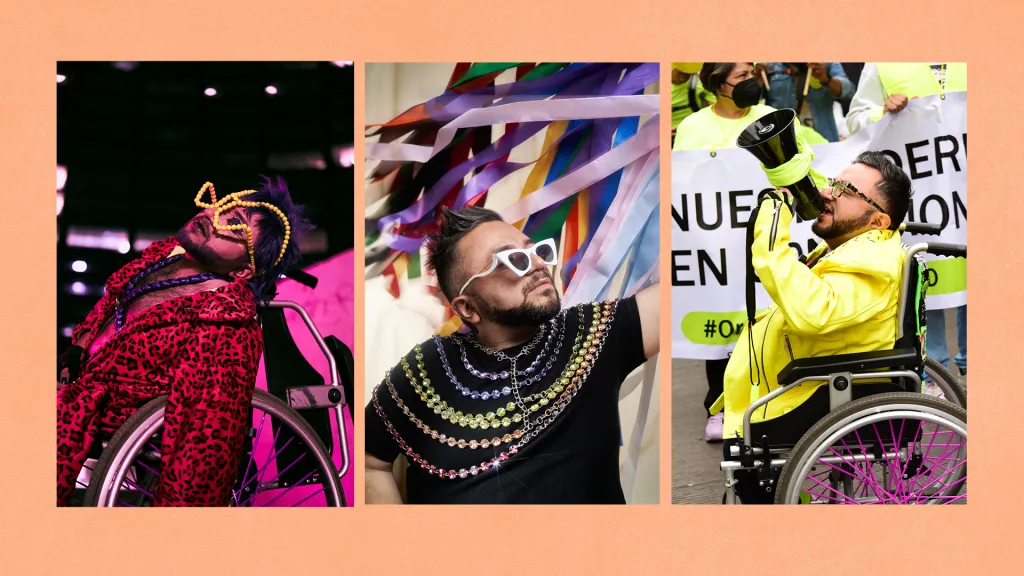 Guz Guevara
Guz Guevara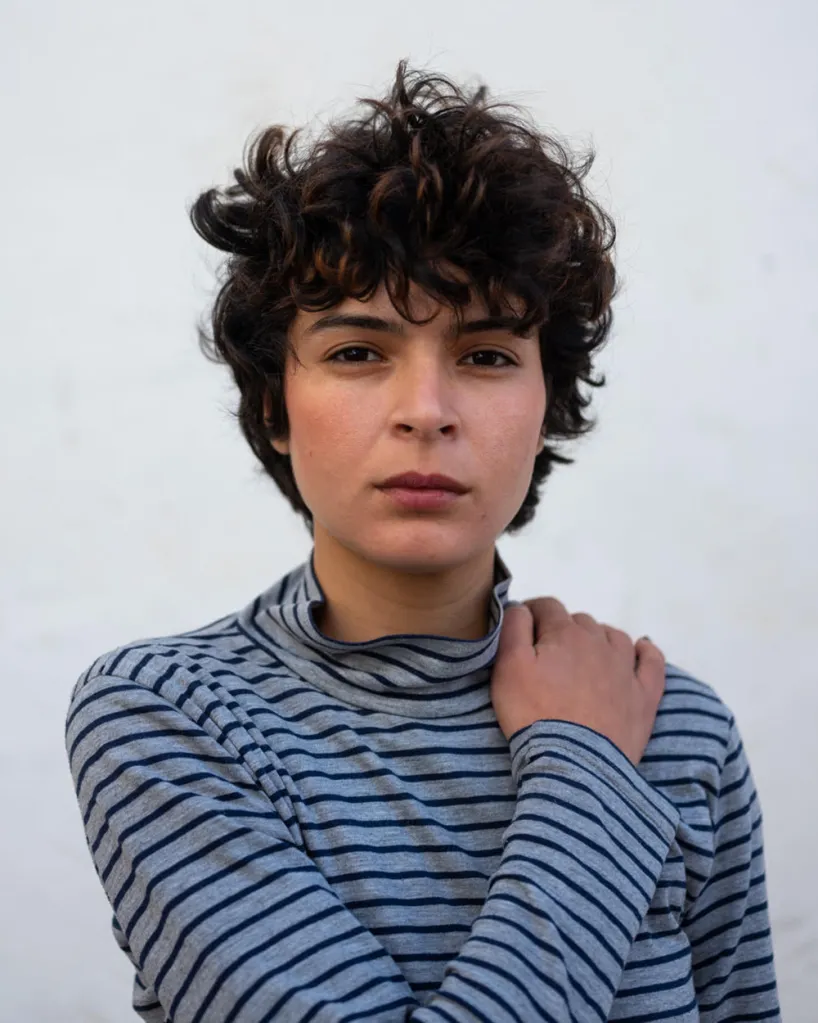 Inès Bouallou
Inès BouallouInès Bouallou
Inès Bouallou is a photographer, poet, and feminist activist. Her work challenges societal norms about gender, mental health, and LGBTQ+ rights and raises awareness of identities that remain underrepresented in Moroccan and North African society. She is also a member of Nassawiyat, a Moroccan LGBTQI+ and women’s rights advocacy collective.
Through her photo series such as Entraves, which symbolizes the power and fluidity of the human body, and Childhood Revisited, which explores sexism in sports, Inés uses self-portraits to question rigid binaries and start conversations about how focusing on categories like “women” and “men” ignores the full spectrum of human existence.
Inés believes that art is a powerful tool for dismantling established gender norms and creating greater equality for everyone. By illuminating the social constructs behind how people present themselves and are perceived in public spaces, she finds it is possible to discover all the similarities in how people experience the world. She is passionate about creating space for people to imagine a more equitable future.
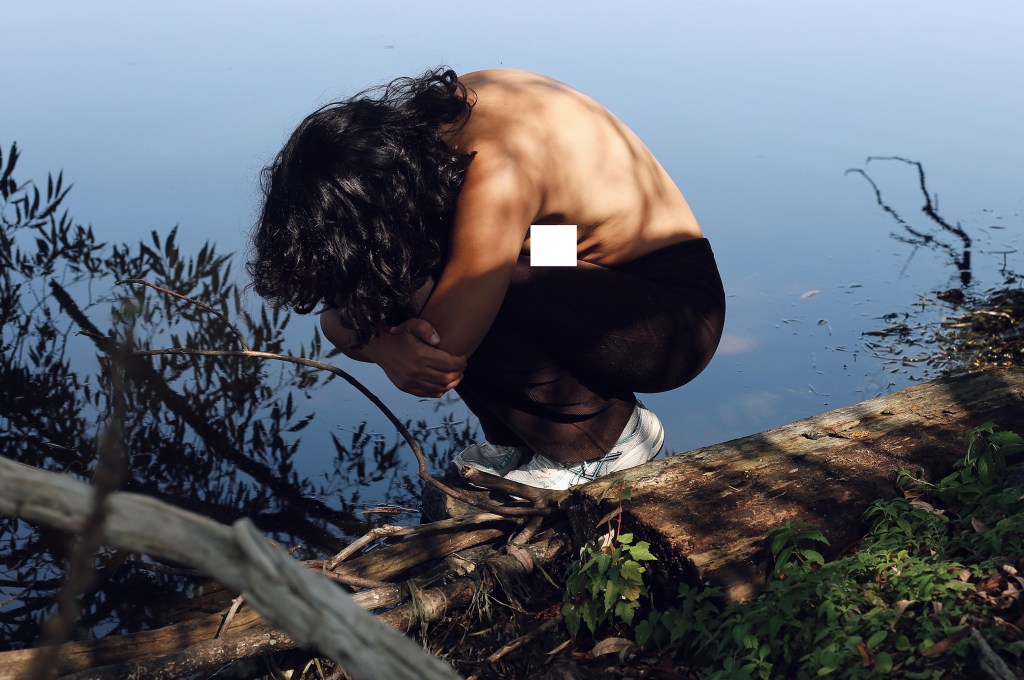 Inès Bouallou
Inès Bouallou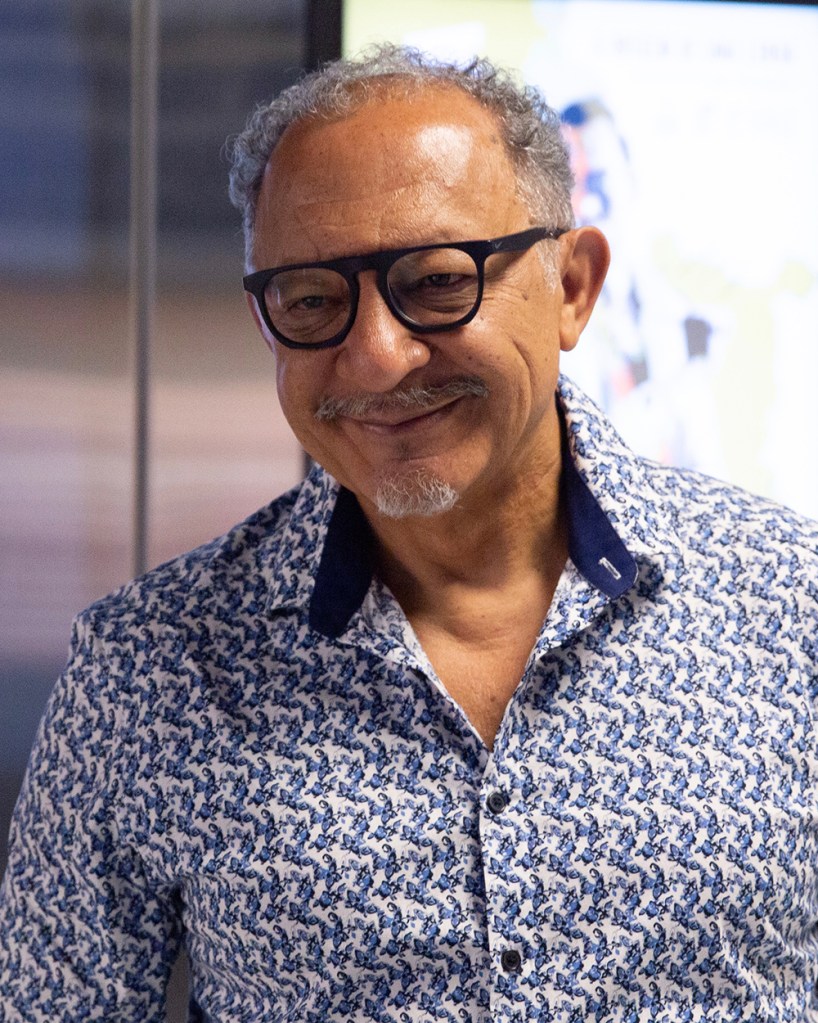 Joel Zito Araújo
Joel Zito AraújoJoel Zito Araújo
Joel Zito Araújo is a filmmaker, writer, and professor of fiction and documentary films and television programs. His work reflects on gender, ethnicity, politics, and socioeconomic conditions, and he is dedicated to building connections with filmmakers in Brazil and Africa to diversify the film industry and lift up artists from historically underrepresented communities.
Since 1984, Joel has produced 29 documentaries, features, and narrative shorts focused on social issues in Brazil, particularly those affecting the nation’s Afro-Brazilian population. Some of his most renowned films are Daughters of the Wind, which featured the largest Black cast in the history of Brazilian cinema, and My Friend Fela, a documentary about the legendary musician Fela Kuti. Daughters of the Wind won eight awards at the Gramado Film Festival, and his work has been shown at festivals around the world.
Joel believes that artists play an essential role in establishing new paradigms and laying the foundations of a more equitable civic landscape. To truly engage with the future of civic space, he believes established artists must connect with emerging artists from Black and Indigenous communities and focus on themes that reflect the desires, anxieties, and joys of new generations.
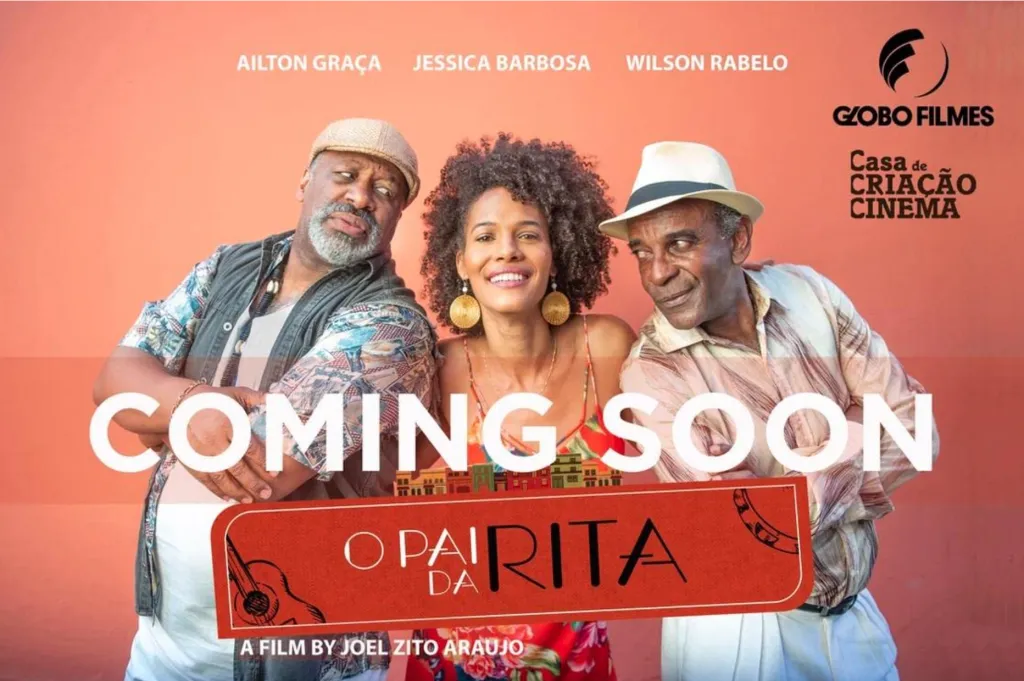 Joel Zito Araújo
Joel Zito AraújoKomunitas KAHE
Komunitas KAHE is a nonprofit organization based in Maumere Regency, Nusa Tenggara Timur, Indonesia. The organization develops collective movements in arts and culture and holds workshops and forums for community members to learn about each other.
Komunitas KAHE was founded in 2015 as an online platform and has since expanded to include multiple festivals, including the Maumerelogia Theatre Festival, the Maumere Exhibition, the Siselo Susurang Festival, and the Flores Writers Festival. It has also been involved in archival work with gender minority groups in Maumere and people from Bajo and Bugis in Kampung Wuring. It is also working to open an art space that will function as a hub for sharing ideas and building relationships.
Komunitas KAHE sees art and culture as educational tools that contribute to community development and understands the importance of building an ecosystem, especially involving young people and diverse groups, that can emerge organically. The founders strive to offer an alternative paradigm for cultural activism and social practice for everyone and, through this, help create a more equitable society.
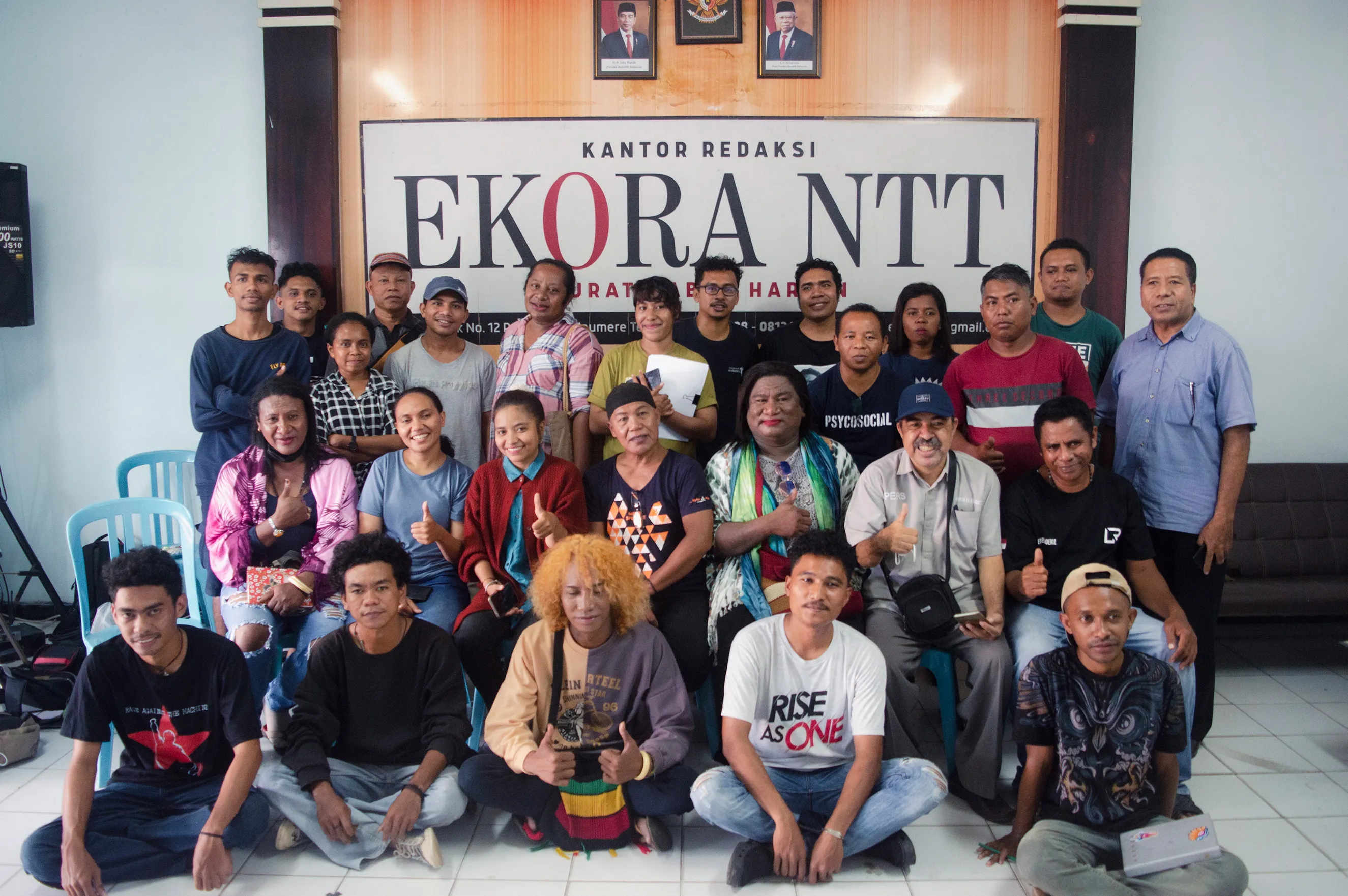 Komunitas KAHE
Komunitas KAHE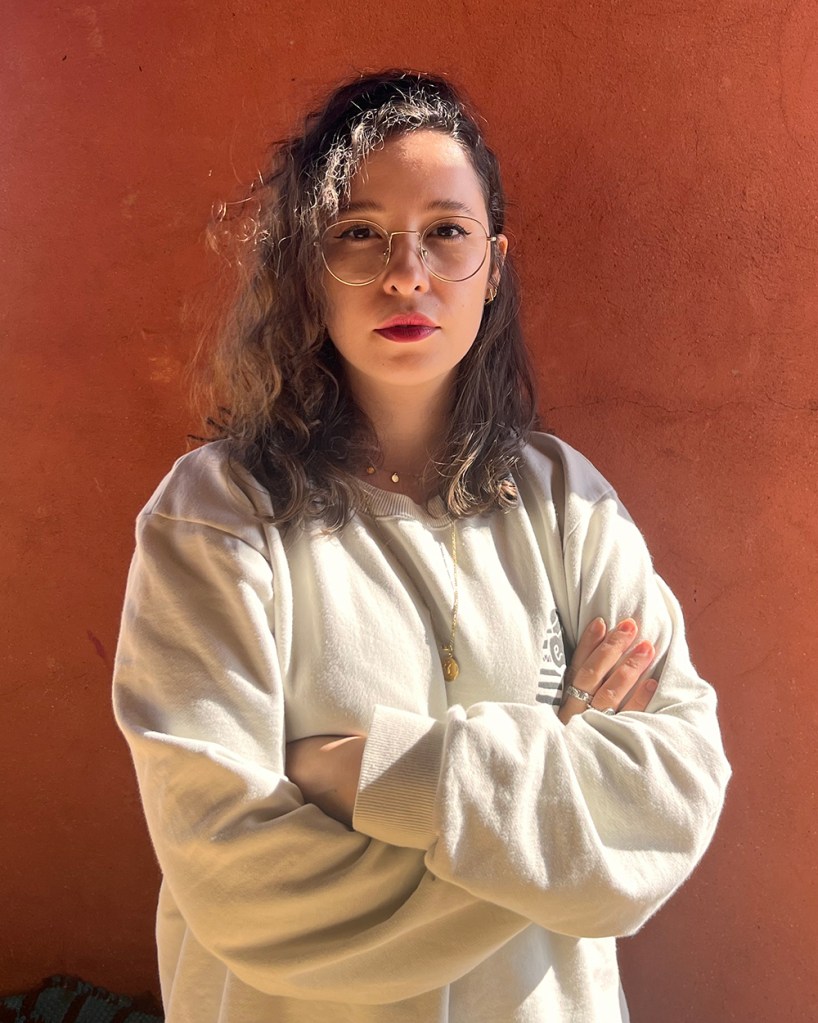 Soukaina Joual
Soukaina JoualSoukaina Joual
Soukaina Joual is a Moroccan multi-disciplinary artist. Her work challenges social norms and highlights the diversity and complexity of the female body. She simultaneously blurs the lines between different dualities: public and private space, the individual and the community, the inside and the outside of our bodies. She often collaborates with Moroccan artisans to tackle the limits between artistic intervention and everyday civic action.
Soukaina’s work addresses social issues such as misogyny, racism, and free expression, including in her project “The Moroccan Sheikha Soukaina.” This narrative-based performance fuses different aesthetic forms to weave together social and personal events and explore deep-rooted ideas and stereotypes about women, witchcraft, superstition, and traditional practices in Morocco. Her ongoing project “Raw Body” focuses on the representation of female bodies.
Soukaina believes that all societies need space for artistic expression to evolve and for important social issues to be explored openly. She aims to create cultural dialogues between different communities in Morocco—and, from there, the world.
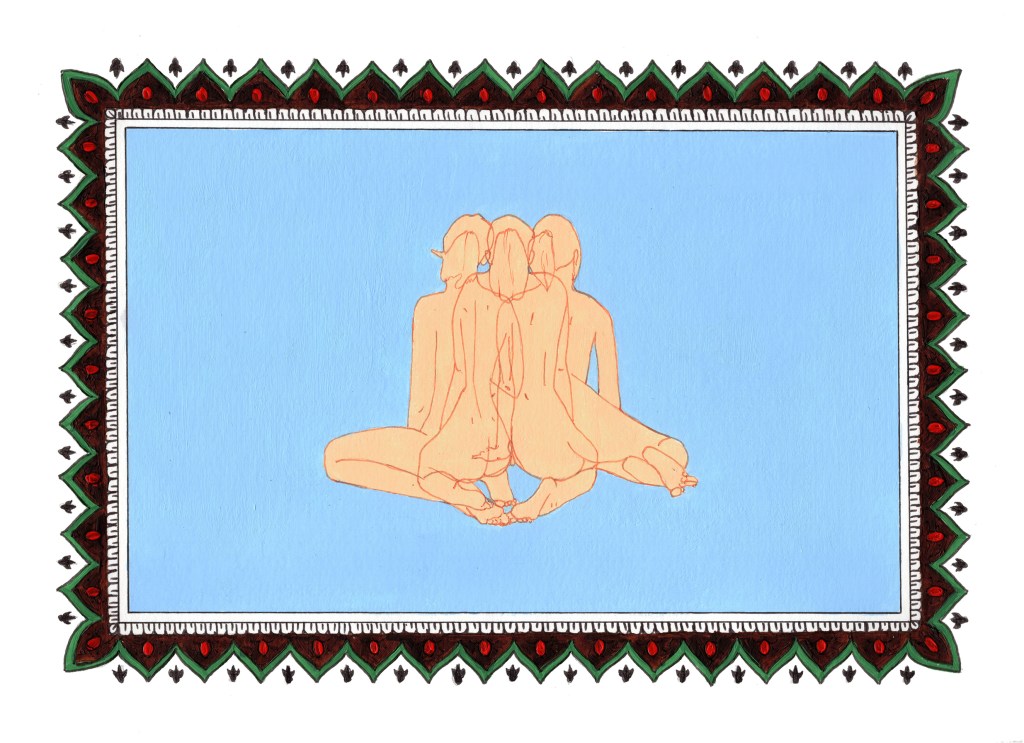 Soukaina Joual
Soukaina Joual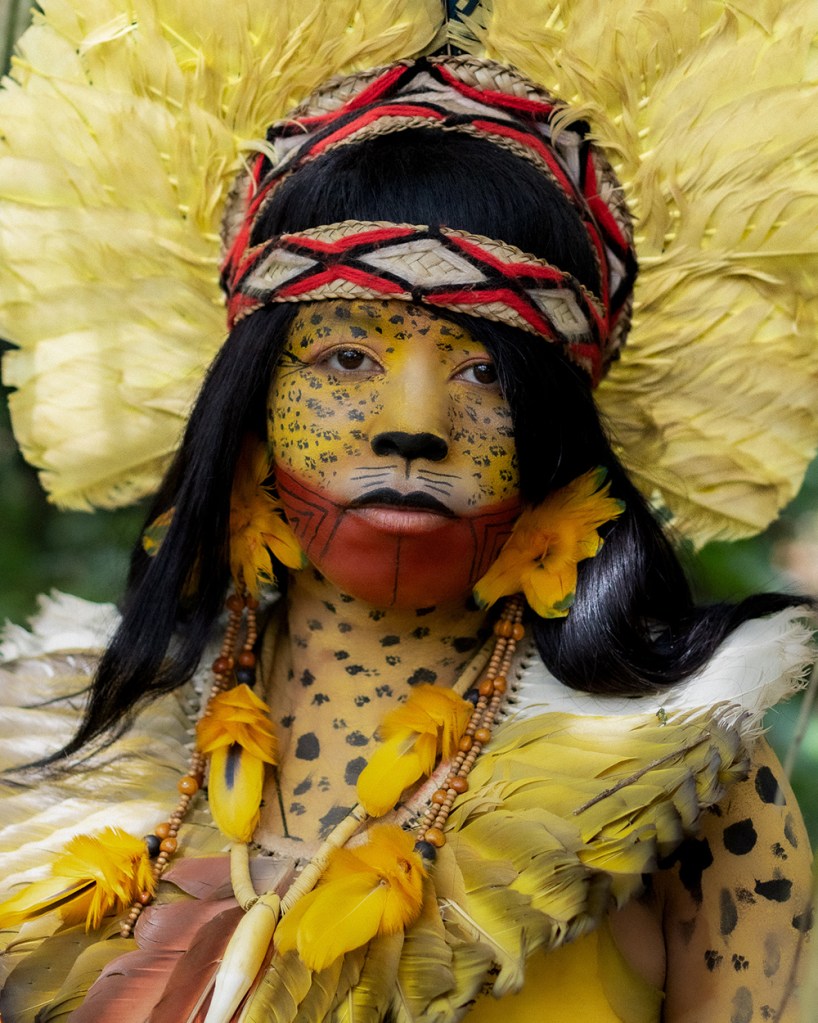 Tamikuã Txihi Gonçalves Rocha
Tamikuã Txihi Gonçalves RochaTamikuã Txihi Gonçalves Rocha
Tamikuã Txihi Gonçalves Rocha is an artist and Pataxó Indigenous woman based in Brazil. Her work reflects stories and memories passed down by her grandmother and mother and often focuses on fighting to defend territories and strengthening and regaining the memory of original peoples, especially Indigenous women. Her project Toka da Onça oka focuses on the knowledge, construction techniques, and materials of her ancestors.
Tamikuã has exhibited her work at Pinacoteca, Galeria Carmo Johnson Projects in São Paulo, and Tufts University Art Galleries in Boston. In 2022, she was nominated for the PIPA Prize, the most prestigious award in Brazilian visual art. In 2023, she produced the exhibition MYMBA`I at the Museum of Indigenous Cultures in São Paulo. She is currently planning a hike that will include drawing and sculpture workshops on the flora and fauna of the Atlantic forest.
Tamikuã sees her art as an instrument of struggle and a way to defend the rights of Indigenous peoples and the earth. She uses images of the jaguar to symbolize inspiration, strength, and wisdom. She believes art is essential to education and conducting meaningful dialogues about history, environmental conservation, and human rights, and that it points a way forward to a future that truly values the knowledge of all cultures.
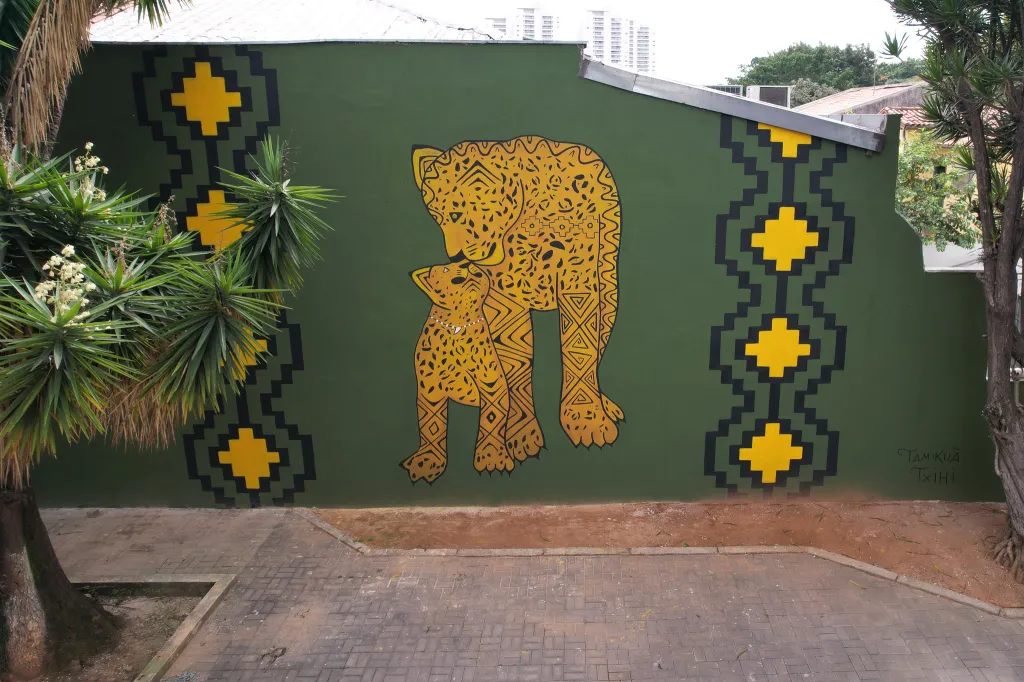 Tamikuã Txihi Gonçalves RochaInès Bouallou
Tamikuã Txihi Gonçalves RochaInès Bouallou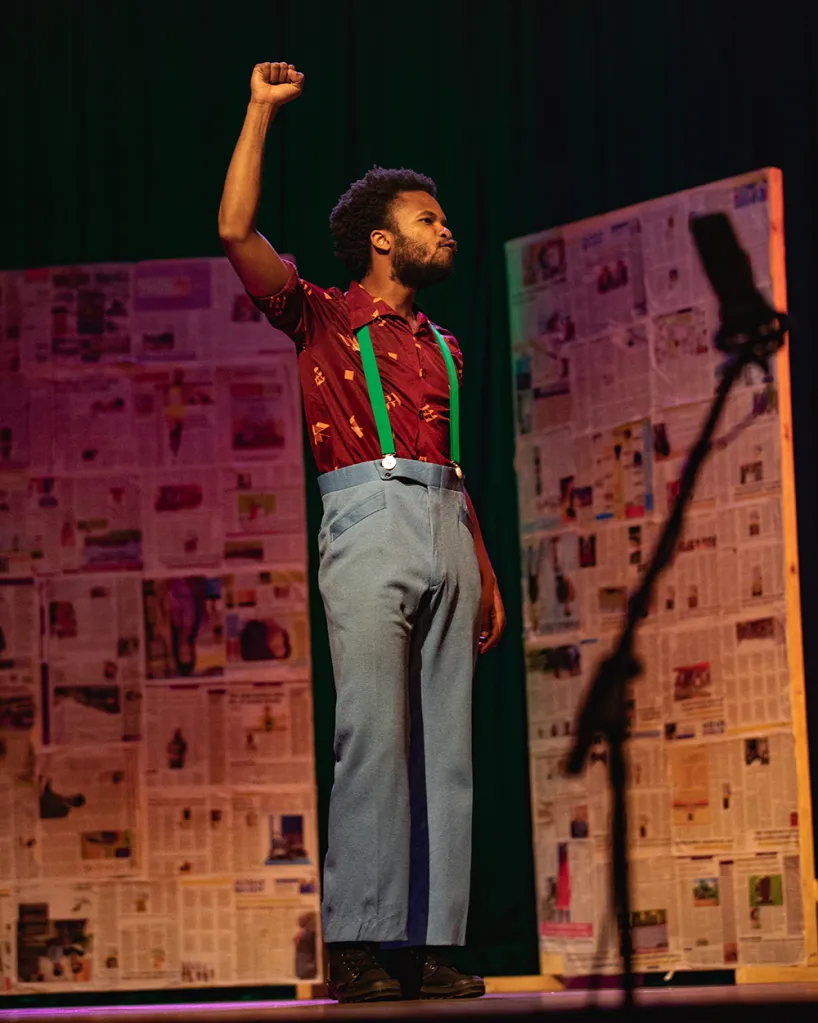 Too Early for Birds
Too Early for BirdsToo Early for Birds
Too Early for Birds is a series of Kenyan theater productions that tell diverse stories from Kenyan history. Founded in 2017 by Nairobi-based performers Abu Sense and Ngartia, the show was inspired by the work of historian and blogger Owaahh. Its “editions” are experimental and feature different directors and a mix of upcoming and established Kenyan actors.
Too Early for Birds is dedicated to telling stories from Kenyan history that have gone overlooked due to narratives created by those in power. Their productions shed light on the lives and achievements of forgotten heroes, challenge narratives that many young Kenyans grew up with, and transform the way audiences look at the country’s future. Too Early for Birds won Best Production, Best Play in English, and the Maya Angelou Award for Best Production on Women’s Rights and Gender-Based Violence at the 2018 Sanaa Theatre Awards, which recognize excellence in Kenyan theater.
The creators of Too Early for Birds envision their work scaling beyond theater onto digital platforms and eventually into a thriving community of civic-minded individuals invested in creating a better Kenya. Through the power of storytelling, they dream of turning social and civic awareness across all spaces into a lived reality.
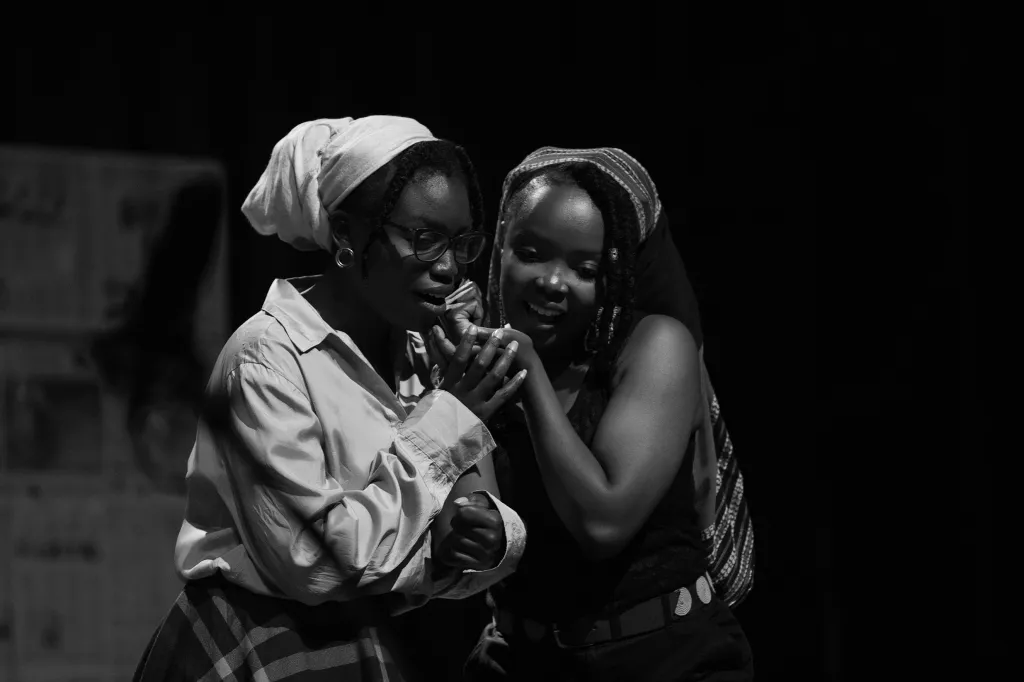 Too Early for Birds
Too Early for Birds
